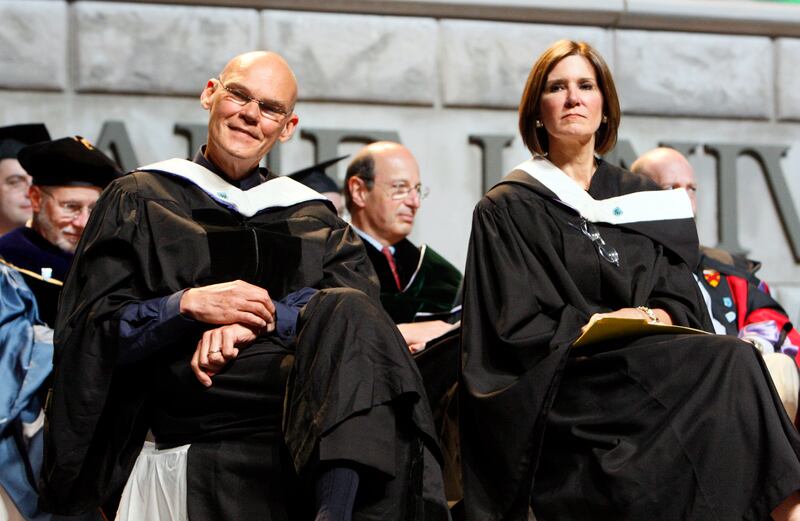SALT LAKE CITY — James Carville and Mary Matalin made it work. Kellyanne Conway and George Conway are still together. But political differences can put strain on a marriage, especially in primary season when the vote of one spouse can cancel out the other.
Five months after President Donald Trump was inaugurated, Wakefield Research released a report on “the Trump effect” on relationships. The firm found that 1 in 10 couples had ended relationships over political differences; twice that among millennials. And nearly a quarter of Americans said they knew someone whose relationship had been negatively affected because of Trump’s election.
Now, with the primary season upon us, another study is out with hope for people in politically mixed marriages.
The findings, published in the Journal of Social and Personal Relationships, suggest that such relationships are more likely to survive when couples keep up with everyday niceties — such as paying each other compliments, saying “thank you” and showing physical affection — habits which social scientists call “relationship maintenance.”
“Couples who actively maintain their relationship are better able to weather the storm of the election because it builds up positive emotions ... that protect the relationship during difficult times,” Tamara Afifi, a professor at the University of California Santa Barbara and co-author of the report,” told PsyPost.org.
“So, even if you vote differently, if you are actively maintaining your relationship, it can help keep you feeling emotionally connected to each other and reduce the propensity for stress and conflict.”

Afifi, who specializes in interpersonal communication, has previously researched how families can successfully navigate through periods of stress. She spoke with Greater Good Magazine in 2018 about the need for family members to create a “a bank of positive emotions” that can help sustain the relationships through difficulties. One strategy that works is for families to adopt an “us against the world” mindset, which helps draw family members closer in hard times.
Political divisions within a family, however, make that impossible and can quickly turn “us against the world” into “me against you” without a deep well of positive communication, Afifi and her colleagues found.
They surveyed 971 couples early in the Trump presidency; 65% had supported the same candidate in the 2016 election. Of those that didn’t, greater incidence of “relationship maintenance” habits and behaviors corresponded with less conflict and stress between the partners. “Participants also reported feeling a stronger bond with their partner and felt more able to successfully resolve differences when they had higher levels of relationship maintenance,” Afifi said.
She noted, however, that more study is needed to see how such politically diverse relationships fare over time.
The marriage of Democratic strategist Carville and his wife, Matalin, who once was a celebrated Republican strategist, has endured. Although Matalin left the GOP in 2016 and registered as a Libertarian, they’re still at opposite ends of the political spectrum. He said recently on MSNBC that the “fate of the world” depends on a Democrat beating Trump in 2020. Matalin, meanwhile, has said of Trump, “He’s doing really great. I can die happy now.”
The couple have been married since 1993, and Carville may have the best advice of all for couples with disparate views. “I’d rather stay happily married than pick a fight with my wife over politics,” he wrote in their 2014 book, “Love & War: Twenty Years, Three Presidents, Two Daughters and One Louisiana Home.”
Relationship maintenance became an interest of social scientists in the 1980s, according to Daniel J. Canary, writing in a 2015 paper entitled “Relationship Management Strategies.”
Canary, a former professor at the University of Utah who now is at San Diego State University, cited five management strategies for couples, including positivity (being intentionally cheerful, even when it’s difficult), being open with each other about relationship goals, showing commitment to one’s partner and the relationship, sharing household tasks and having shared social networks.
The latter might be difficult for Kellyanne Conway, who managed Trump’s campaign in 2016 and is now his White House adviser. Her husband, George Conway, is an attorney and a vociferous critic of the president, leading to much public speculation about the state of their marriage, which has even been pilloried on Saturday Night Live.
The couple have been married since 2001 and have four children, which is enough reason to hope they’re being cheerful and polite and engaging in other forms of relationship maintenance. “Positivity and assurances are most effective in predicting relational factors such as satisfaction, commitment and love,” Canary said.


